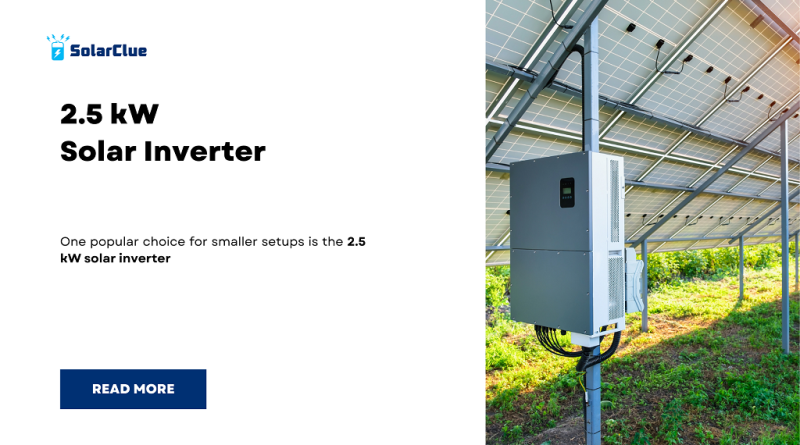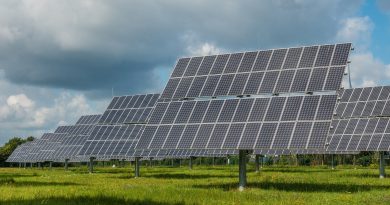2.5 kW Solar Inverter
Are you thinking about investing in solar energy? Whether for your home or small business, a solar inverter plays a crucial role in converting solar power into usable electricity. One popular choice for smaller setups is the 2.5 kW solar inverter. It’s a great option for those who are looking to reduce energy costs, become more eco-friendly, or even enjoy the independence of generating their own power.
But what exactly is a 2.5 kW solar inverter? How does it work, and why is it such a smart choice for homeowners and small businesses? Let’s explore everything you need to know about this powerful yet compact device.
Table of Contents
- 1 What is a 2.5 kW Solar Inverter?
- 1.1 How Does a 2.5 kW Solar Inverter Work?
- 1.2 Why Choose a 2.5 kW Solar Inverter?
- 1.2.1 Ideal for Small to Medium Homes and Businesses
- 1.2.2 Cost-Effective
- 1.2.3 Easy Installation
- 1.2.4 Supports Battery Storage
- 1.2.5 Benefits of a 2.5 kW Solar Inverter
- 1.2.6 1. Reduces Electricity Bills
- 1.2.7 2. Environmentally Friendly
- 1.2.8 3. Energy Independence
- 1.2.9 4. Low Maintenance
- 1.2.10 5. Future-Proofing Your Home or Business
- 1.2.11 1. Efficiency
- 1.2.12 2. Brand Reputation
- 1.2.13 3. Battery Compatibility
- 1.2.14 4. Installation and Service
- 1.3 Cost Breakdown: 2.5 kW Solar Inverter
- 1.4 Installation of a 2.5 kW Solar Inverter
- 1.5 Maintenance Tips for Your Solar Inverter
- 1.6 FAQs
What is a 2.5 kW Solar Inverter?
In simple terms, a solar inverter is a device that converts the Direct Current (DC) generated by solar panels into Alternating Current (AC), which is the type of electricity your home or business appliances use. A 2.5 kW solar inverter can handle up to 2.5 kilowatts of energy production. This makes it ideal for small to medium-sized solar systems, where the energy demand isn’t extremely high but still significant enough to make a difference in reducing electricity bills.
How Does a 2.5 kW Solar Inverter Work?
The process of converting solar energy into usable electricity can be broken down into a few easy-to-understand steps:
- Solar Panels Capture Energy: Your solar panels collect sunlight and convert it into DC electricity.
- Inverter Conversion: The 2.5 kW solar inverter takes this DC electricity and converts it into AC electricity, which is the standard form of electricity used in homes and businesses.
- Energy Use: The converted electricity is then used to power your appliances, lights, and other electrical devices.
- Excess Energy: If your system generates more power than you’re using, the extra energy can be stored in batteries (if you have a solar battery setup) or sent back to the grid.
Why Choose a 2.5 kW Solar Inverter?
Ideal for Small to Medium Homes and Businesses
This is perfect for homes or businesses with moderate energy needs. If you have a smaller house or a business that doesn’t rely heavily on electricity, this size will likely be enough to cover your basic energy consumption.
Cost-Effective
One of the main reasons people choose a 2.5 kW solar inverter is that it offers a good balance between performance and affordability. It’s not as costly as larger systems but still provides enough power to make a noticeable reduction in your energy bills.
Easy Installation
This inverter size is generally easier to install than larger models. Many solar providers can set it up in a day, minimizing disruptions to your home or business.
Supports Battery Storage
Many 2.5 kW solar inverters are compatible with battery storage systems. This allows you to store excess energy generated during the day for use at night or during power outages.
Benefits of a 2.5 kW Solar Inverter
1. Reduces Electricity Bills
One of the primary reasons to invest in solar power is to reduce your reliance on the grid. A 2.5 kW solar inverter can generate enough energy to cover a significant portion of your daily power needs, reducing your monthly electricity bills.
2. Environmentally Friendly
Using solar energy means you’re cutting down on fossil fuel consumption. This reduces your carbon footprint and contributes to a healthier planet.
3. Energy Independence
With this, you can generate your own electricity, giving you more control over your energy usage. This is especially useful in areas where power outages are frequent.
4. Low Maintenance
Solar inverters, especially smaller models like the 2.5 kW, require very little maintenance. Once installed, they quietly do their job with minimal upkeep needed.
5. Future-Proofing Your Home or Business
Energy prices are always fluctuating, and investing in a solar inverter now can help protect you from rising energy costs in the future.
How to Choose the Right 2.5 kW Solar Inverter?
1. Efficiency
Check the efficiency rating of the inverter. A higher efficiency means that more of the solar energy captured by your panels is converted into usable electricity.
2. Brand Reputation
Choose a reputable brand that offers a good warranty and after-sales support. Some of the well-known brands include Growatt, Luminous, and Fronius.
3. Battery Compatibility
If you’re planning to add battery storage to your system, ensure that the inverter you choose is compatible with solar batteries.
4. Installation and Service
Ensure that your installer is certified and experienced with the specific inverter model you choose. This ensures that your system will be set up correctly and will operate efficiently.
Cost Breakdown: 2.5 kW Solar Inverter
Here is a general cost breakdown to help you understand the expenses associated with a 2.5 kW solar inverter system. Prices may vary based on location, brand, and installation charges.
| Component | Estimated Cost (USD) |
|---|---|
| Solar Panels (2.5 kW) | $1,500 – $2,000 |
| 2.5 kW Solar Inverter | $500 – $800 |
| Installation Charges | $300 – $600 |
| Battery Storage (optional) | $1,000 – $2,000 |
| Total Cost | $2,300 – $5,400 |
Installation of a 2.5 kW Solar Inverter
Installing a 2.5 kW solar inverter typically takes 1-2 days, depending on the complexity of your setup. Your installer will first assess your energy needs, then design a system that meets your requirements. Once everything is in place, the inverter will be connected to your solar panels, and the system will be tested to ensure it’s working properly.
Maintenance Tips for Your Solar Inverter
- Regular Cleaning: Dust and debris can reduce the efficiency of your solar panels. Clean them at least twice a year.
- Monitor Performance: Many inverters come with apps or monitoring systems that allow you to track how much energy your system is producing.
- Annual Inspections: Have a professional inspect your system once a year to ensure everything is working properly.
Conclusion
A 2.5 kW solar inverter is an excellent option for homeowners and small businesses looking to harness solar energy. It’s cost-effective, easy to install, and provides enough power to cover a significant portion of your energy needs. By choosing this size, you’re not only reducing your electricity bills but also contributing to a greener, more sustainable future. Visit SolarClue® to see the best Solar Inverters. SolarClue® actively sells solar energy products at discounts of up to 50% on its online marketplace.
If you’re thinking about making the switch to solar, a 2.5 kW solar inverter could be the perfect starting point. Whether you’re looking to save on energy bills, reduce your carbon footprint, or simply gain more control over your power usage, this type of inverter offers a range of benefits that are hard to overlook.
FAQs
1. How much electricity can a 2.5 kW solar inverter generate?
This can generate enough electricity to power small to medium-sized homes or businesses. On average, it can produce around 10 to 12 kWh per day, depending on the amount of sunlight in your area.
2. Is a 2.5 kW solar inverter suitable for a large house?
For larger homes with higher energy demands, you might need a bigger solar inverter. However, a 2.5 kW system can still cover basic electrical needs like lighting and small appliances.
3. Can I add more panels to a 2.5 kW system?
Yes, but the total energy output should not exceed the inverter’s capacity. If you need more power, you may need to upgrade to a larger inverter.
4. Do I need a battery with a 2.5 kW solar inverter?
A battery is not necessary but can be added if you want to store excess energy for later use.
5. What is the lifespan of a 2.5 kW solar inverter?
A well-maintained solar inverter can last between 10 to 15 years, though many come with warranties that cover replacements or repairs during that period.




